News
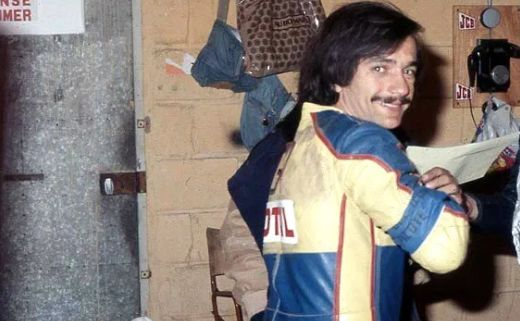
François GOMIS (Prairie 1964 - 1971)
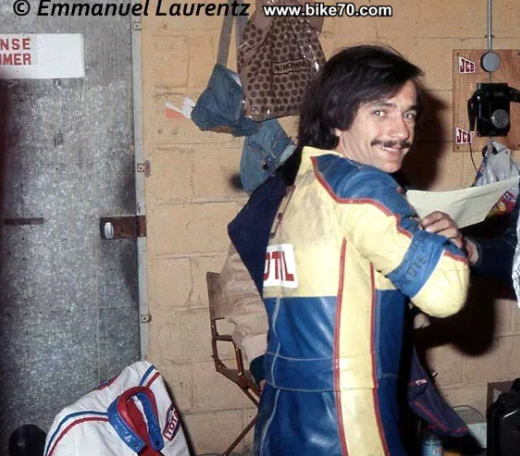
Photo Emmanuel Laurentz
born in Paris on April 10, 1953
François Gomis did his first race at the age of 19 in 1973 (La côte Lapize at Montlhéry). After completing his secondary education at the École des Roches (Verneuil-sur-Avre), like his brother Laurent, and then studying at the Beaux Arts in Paris and working at mid-time to finance his studies at Charles Krajka's (at the time France's leading Moto Guzzi dealer), he chose to race a Moto Guzzi 750 V7 Sport, Charles Krajka having decided to help him.
The Italian motorcycle, with its twin-cylinder 4-stroke engine, was not at first sight competitive, despite its excellent roadholding, against the nippy Kawasaki 750 H2 3-cylinder 2-stroke, which at the time was the queen for novice riders.
Nevertheless, François Gomis quickly made a name for himself in the Critérium 750, a category set up by the French Motorcycling Federation to spot young talent. It's worth noting that the V7 Sport's strong point wasn't nervousness, so he always found himself last on the first braking after the start of a race! In 1974, François raced again in the Critérium 750, again with the V7 Sport, improving his riding skills and finishing in the top 10 several times. He also took part in the Tour de France (5th in the circuit rankings) and was a finalist in the Casque Total (won by Hervé Guilleux) the same year.
At the start of the season, he had no trouble qualifying for the final phase of the Kawasaki Cup - another stepping stone for young riders - with a standard bike lent to him by a friend. But he preferred not to compete in this cup, which required a total investment of time to succeed.
Always a fan of angles and heavy braking, he won the National 750 in 1975 on a second-hand Yamaha TZ 350, and came 3rd in the Trophée de France 750 behind two Internationals. It should be noted that the Federation did not officially award the title of French National 750 Champion that year.
He started the 1976 season with a lot of ambition, his International license, a new TZ 350 C (the first cantilever TZ) which Yamaha importer Jean-Claude Olivier agreed to sell him, a few sporting contracts (Dada, Michelin, Marchal, Nava leathers) and an entry in the French Grand Prix at Le Mans.
A serious crash in private testing put an end to his career in speed (see below).
His family and professional life being his priority, and after the accident, François Gomis realized that he no longer had the attack he'd had until then. He also quotes Enzo Ferrari as saying: " A child is one second more on each lap "! As a result, he dropped out of racing altogether, competing "only" in a few endurance races from 1977 to 1980, finishing 10th, 12th or in the top 20 in the Bol d'Or and the 24 Hours of Le Mans. Teaming up with his brother Laurent (2 years his senior), they were fast enough to be drivers for the Suzuki importer in 1979, and succeeded in racing the other years in semi-pro or, as François puts it: " In the gentlemen very fast drivers category "!
All in all, François Gomis only made just over thirty starts in his entire career, which was very few at a time when people often raced in several categories. Remember that in the 70s, a rider competing in the Continental Circus in 250 and 350 classes, and lining up in international races, could contest some forty races per season.
Looking back, François Gomis says: "I should have stopped racing when I found out I was going to be the father of a little Marie in 1974, and again in 77 when a little Claire was born", and adds : "I intellectualized too much a sport, both monstrous and marvellous, where you really shouldn't think".
His best memories
are the congratulations of Gérard Choukroun and Patrick Pons in 1975, Christian Léon at the 1979 Le Mans 24 Hours prize-giving ceremony, and the incredible, "surreal" atmosphere of motorcycling in the 70s.
His worst memories?
Having to dismantle his V7 Sport 750 in 1974 to prove that it wasn't an 850, as he put it: " It' s the throttle that's 850, not the engine". Another bad memory was an ignition problem on his TZ in the only 250 race he took part in (La Châtre 1975, pole-position, leading until mid-race, finished eighth). Finally, twelfth place in the 1980 Le Mans 24 Hours with the Motoplay Kawasaki 1000 (ex Jean-Bernard Peyré) was a major disappointment for him. A crash and, above all, the incomprehensible breakage of the cylinder head at the start of the race (with the return to the pits by pushing) prevented him and his brother Laurent from finishing seventh or eighth, which for them, who only did two races a year, would have confirmed them as among the world's best privateer riders (they had finished tenth the previous year with the Suzuki GS 1000 S). On the team's other Kawasaki, Philippe Vassard and Gilles Desheulles finished fifth.
His favorite French drivers are (in brackets what he's seen of them): Pons (discreet and very nice), Rougerie (lucid), Fernandez (perfectionist), Baldé (elegant), Choukroun (childlike), Husson (his assertive anarchism), Soulas (quiet), Rigal (determined), Ruiz (great character), his brother (versatile asphalt/TT). Only one foreign rider really impressed him, Cecotto, who for him is pure talent.
François Gomis hasn't ridden a motorcycle since the Bol d'Or 80 (apart from two hours in a TT endurance race in 1985). He has fond memories of his brief stint in the motorcycle press from 1978 to 1980 (see below), and in 1981, the year of Michel Rougerie's death, he was one of the managers of the Écurie Pernod.
He then forgot about motorcycling for over 25 years, not even wanting to hear about it. A radio journalist for ten years, then an automotive journalist, then a communications consultant, he is a grandfather five times over, loves nonsense, history and classical music, and has no television. He is also a ceramist, among other activities, including running the Bike 70 association with its founder Francis Boutet and Jean-Claude Jacq.
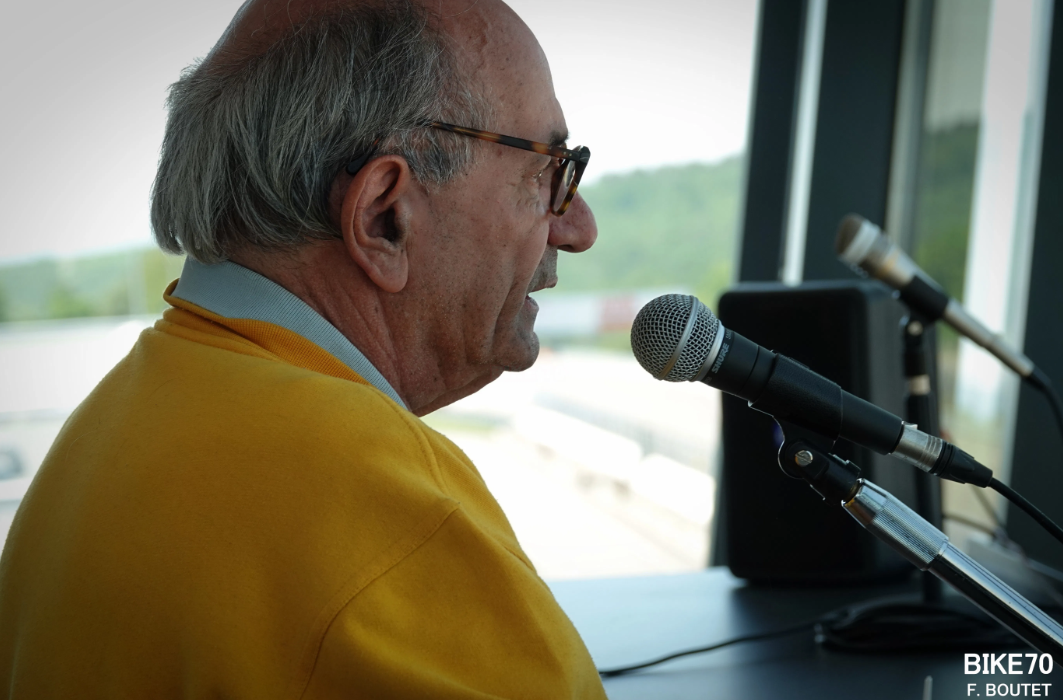
The accident
In 1976, for his first year as an International rider, François Gomis was able to order the ideal motorcycle for a privateer: a new Yamaha 350 TZ C for customer competition. As confirmed International riders are served first by Sonauto, the Yamaha importer, he received his TZ just before the French Grand Prix, and made a youthful error by immediately going to test it at Dijon-Prénois without dismantling the engine for checking. A crankshaft bearing failed, locking the engine in the left-hand corner of the S des Sabelières. In the fall, the TZ slammed hard into his back, jeopardizing his participation in the French GP and his season. The accident gave him pause for thought (he was a father). He only resumed racing at the 1977 Bol d'Or, hanging up his helmet and racing suit at the 1980 Bol d'Or.
In his fifties, he felt the consequences of the crash more keenly, which led him to say that there's no age limit for meeting sister morphine! François Gomis is above all happy not to have hurt himself more, and thinks of all those who were less fortunate than he was, citing Anne-Marie Lagauche, for example, saying simply " I often think of her ".
Anecdote
In 1974, François Gomis teamed up with the late Gilbert Lavelle (winner of the Critérium 750 that year) in the Coupe des 4 Saisons endurance race at Le Castellet with H2s (American-style racing). They were in second place when he passed Hervé Guilleux and his 400 Kawa just before the esses de la Verrerie. After the esses, at the very start of the chicane braking, the 400 hit the H2 from behind. A big crash for both drivers. They don't "argue". Gomis says to Guilleux: " You've forgotten that an H2 brakes earlier than a 400 ". Guilleux replies, " You swerved . In short, a racing incident. The two protagonists meet by chance and briefly, having not seen each other for some fifteen years. And what are they talking about? Their lunch pail, each of them always sure they're right.
Gilbert (Gilbert Lavelle)
As François Gomis and his wife Élisabeth arrived at the 1976 Bol d'Or practice run at Le Mans, they came across Éric Saul. François says to Éric: " Are you all right ? Éric replies, " No, Gilbert (Lavelle) has just killed himself . " How?" asks François. " He fell at Chemin aux Bœufs. Maybe the gearbox ..." replies Éric. Silence. Then they part with just a banal " see you later ", aware that this could have happened not to Gilbert but to either of them. Not another word.
Elisabeth says nothing.
Pilots are incredibly selfish.
La presse
François Gomis was briefly a test journalist (regular freelancer) at Moto Journal (1978 and 1979), then editor-in-chief of the short-lived (4 issues!) and luxurious monthly Motoplay in 1980. He went on to enjoy a successful career in general news journalism in the daily press, radio (trained at Radio France) and, to a lesser extent, television (freelance).
A morning news presenter on the airwaves, François Gomis has also covered presidential elections in France and the USA (in Washington), as well as seven Roland Garros (Noah 1983, he was there!) and four Bercy tennis tournaments, among others. He was also special envoy to a dozen countries for all kinds of events, and editor-in-chief. At the end of the '80s, he presented radio news with Arthur, Laurent Boyer and Nagui in the studio, when they made their national debut!
A car enthusiast, in the 90s he was also a journalist and test-driver for sedans and 4x4s, and for many years he was a free-lance in corporate communications.
He is also a photographer, as were all journalists in the specialized press. Back in the days of film, when journalists were just starting out, they were taught how to use an SLR camera. François would like to point out that the photographers were real "pros".
The return of passion
In 2007, his brother Laurent competed in the Bol d'Or Classique with Jean Basselin on a Moto Guzzi Le Mans. Although François had only been on a circuit once in 25 years, he still came to see his brother at Magny-Cours. There he met Francis Boutet, a great motorcycle enthusiast, close friend of Bruno Bonhuil (who died at the Macao GP in 2005), and creator and webmaster of the brunobohnuil.com site and the Bike 70 website, already the reference site for French motorcycle sport. They hit it off, and Francis asked him if he'd like to contribute to bike70.fr François rediscovered his passion for motorcycling, and collaborated with Francis and Jean-Claude Jacq (Bike 70's "Monsieur Cinéma"). The trio proved effective, and the site grew, as did the Bike 70 Dailymotion and two Facebooks (one international, the other for France).
Recognition came with the French Motorcycling Federation, which agreed to be a partner of the Bike 70 association (Loi 1901) created on December 2, 2013.
Back in the world of his youth, François is reunited with his old friends, including Daniel Adrian, who, among other things, looks after the well-known riders for the Coupes Moto Légende in Dijon. Making the link between motorcycling and François' radio days, Daniel Adrian put him in touch with the organizers. And in 2010, François Gomis became one of the speakers for the Coupes Moto Légende, and later for Iron Bikers, among others.
The "10 Glorieuses
If the 60s were the legendary years of motorcycle sport, many call the 70s the golden age of motorcycling. For François Gomis, the 70s were also the "10 glorieuses", in reference to the "30 glorieuses" of French society - the 50s/60s/70s - synonymous for many with development and freedom. He also points out that, by definition, you can't surf all the time, and that there comes a time when it all falls apart! So, like all his generation, he notes with amusement and pleasure that the 70s have become a cult, especially for the marketing people of the early 21st century.
Endurance, the former, and the latter.
In endurance racing, there are firsts and there are buts. Finishing tenth, twelfth and in the twenties in several Bol d'Or and 24 Hours of Le Mans races between 1977 and 1980 with his brother Laurent, François Gomis points out that drivers of his level were all top national drivers in their own countries before competing in the world's greatest endurance races. Even back then, the organizers of these prestigious events received numerous applications, selecting the best to take part in the qualifying tests.
While it's perfectly normal for the front-runners to attract the attention of the public and the media, he's also keen to set the record straight and highlight the achievements of those who aren't always in the photos! For him, finishing well in one of the world's two greatest endurance races is comparable, in performance terms, to finishing 20th, 30th or 40th in an Olympic marathon final. Or in tennis, in doubles, to an eighth or sixteenth-place finish at Roland Garros or Wimbledon.
If you're a passionate practitioner of either of these sports, just imagine what it's like to run with an Olympic marathon finalist, or what it's like to play with a Grand Slam doubles player ranked 150th or 200th in the world. If you want to be dropped or not touch a ball, it's ideal...
In motorcycling, with the so-called "second knives" of endurance racing, it's the same according to him.
François Gomis doesn't hesitate to draw up a (non-exhaustive) list of the best-known speed racers (GP and 750) with whom he has shared the track, like all his "colleagues", without any problems, and stressing that respect was mutual when they were all together: Sadao Asami, Jean-François Baldé, Kork Ballington, Guy Bertin, Gianfranco Bonera, Olivier Chevallier, Wes Cooley, Graeme Crosby, Boet van Dulmen, Thierry Espié, Bernard Fau, Marc Fontan, Michel Frutschi, Takazumi Katayama, Pentti Korhonen, Mario Lega, Christian Léon, Patrick Pons, Didier de Radigues, Phil Read, Hubert Rigal, Raymond Roche, Michel Rougerie, Christian Sarron, Éric Saul, Freddie Spencer...
Not bad, eh? And that the only person to have given him an unstoppable exterior is Christian Léon (24 Hours of Le Mans 1979 in the early hours of the morning)...
Finally, being alive and well, François Gomis has no regrets about not having had a real career.
And when it comes to the harshness, even cruelty, of motorcycle sport in those years, his defence can be summed up in the words: " That's just the way it is ".
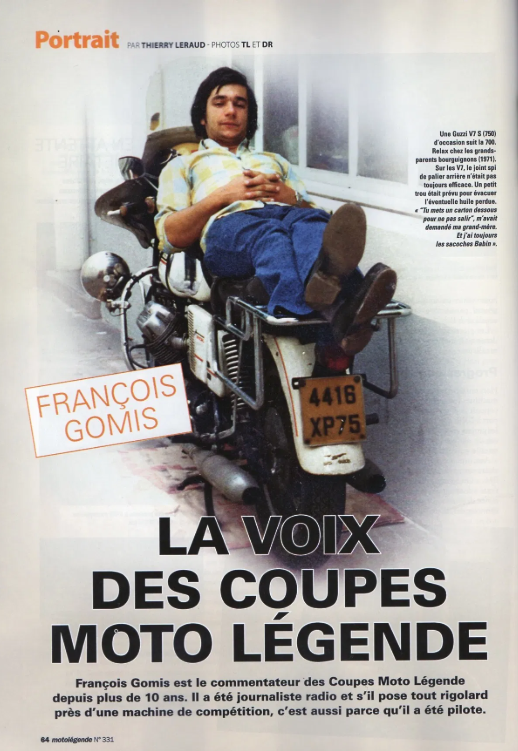
Declared canonical URL: https: //www.bike70.fr/pilotes-g-et-h/fran%C3%A7ois-gomis
Bike 70 FFM - the website of legendary riders, bikes and races
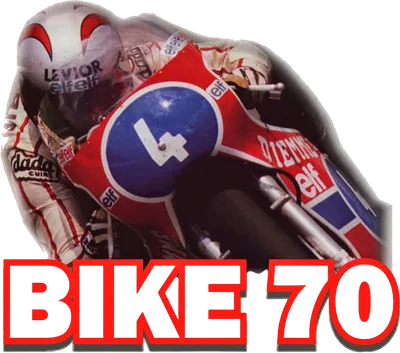









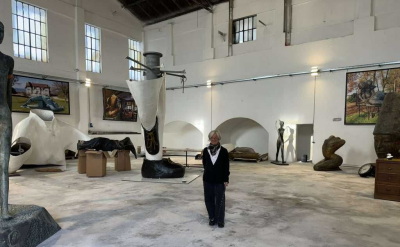
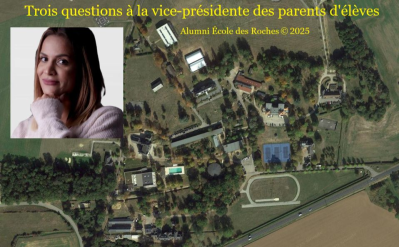

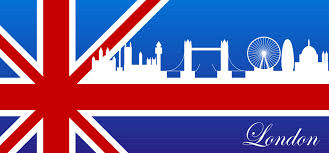
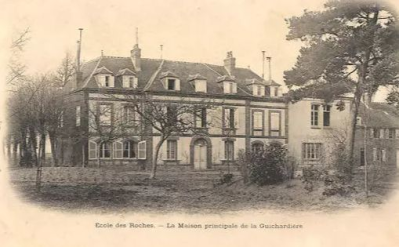
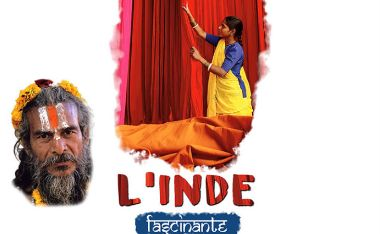

No comment
Log in to post comment. Log in.